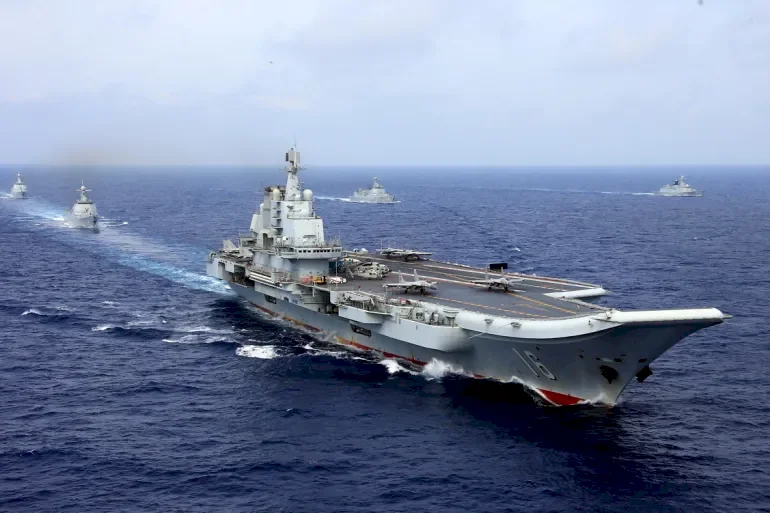
National Interest: Is China's Military Industry Surpassing America's?
SadaNews - In an article published on the National Interest website, writer James Holmes reviewed the performance of the Chinese Navy in comparison to the American Navy, noting that China has succeeded in enhancing its global image and maritime capability, and that the United States needs a comprehensive overhaul in military leadership and industrial institutions to confront Beijing.
Holmes - a professor in the Strategy and Policy Department at the U.S. Naval War College - believes that the ability to "project power" is as important as actual combat capability, and that naval superiority is not only in maritime confrontations, but also in the ability to manage the country's international reputation.
Image and Reputation are Power
The writer, who was a U.S. Navy officer and participated in the Gulf War, explains that reputation alone is enough to create strategic influence in the minds of other countries and observers, potentially affecting the balance of power even before any armed conflict.
It is sufficient for international observers to be convinced that the Chinese Navy appears stronger than its competitors for Beijing to achieve real political and strategic gains. Human nature leads countries and allies to support the stronger party rather than one that seems prone to failure, according to the article.
Holmes pointed out that China excels in managing its image around the clock and has benefited from its ability to control information, which allows it to restrict the dissemination of negative news internally, enhancing its external reputation.
On the actual strength of China, the writer affirmed that it has succeeded in rebuilding itself as an integrated maritime power, with a massive commercial and military fleet that has influence in ports around the world, including traditional American spheres of influence, such as a port in Peru.
The Rise of Authoritarian Regimes
Holmes raised questions about the concept that open societies - referring to the United States - are more capable of strategic adaptability and superiority than authoritarian regimes like China.
He clarified that the prevailing theory is that authoritarianism achieves rapid results, as it relies on the wisdom of a single leader. However, this advantage is also a weakness, as its success depends on the wisdom and intelligence of a few leaders.
Free societies, in theory, are more dynamic because they can change their leaders to keep pace with the times, making them more flexible in the long term.
However, the writer questions whether the results of the current competition between the United States and China confirm the validity of this theory, noting that China has developed a level of "flexibility" that combines rapid execution with planning effectiveness typically associated with open societies.
He mentioned that a committee of experts and leaders from the U.S. Navy reached nearly the same conclusion.
This development, in the writer's view, calls for a comprehensive cultural reform in the United States to revitalize government, military, and industry to keep pace with China and other competitors.
This will determine the country's ability to achieve maritime superiority and confront China's ambitions in the Indian and Pacific Oceans.

High-level sources reveal to SadaNews: Washington seeks to hold a Gaza Reconstruction Conf...

Sources to 'SadaNews': 'Hamas' Prepares to Announce New Head of Its Political Bureau

The Largest Since the Iraq Invasion: Washington Continues to Strengthen Its Military Prese...

Americans Ask: Does Huckabee Represent Washington's Interests or Those of Tel Aviv?

Global Newspapers: Sewage Crisis on American Aircraft Carrier and Its Sailors Want to Resi...

مصر وتركيا.. "التحالف الإسلامي" الذي تخشاه إسرائيل

Sheikh Sends Message to Mladenov Announcing the Establishment of a Liaison Office Headed b...

